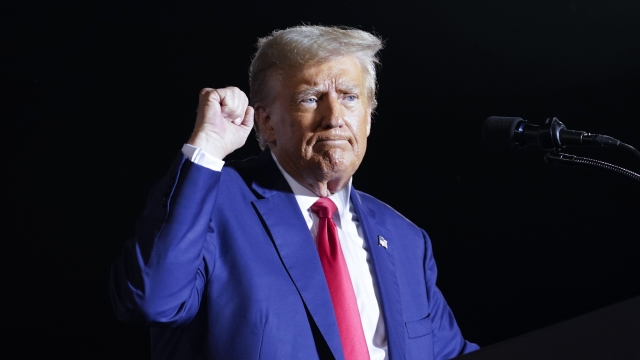Thursday was the third time a courtroom has heard this case, one that each time has asserted the same thing: Donald Trump was the key inciter of the Jan. 6 attack on the Capitol and therefore should be ineligible to run for president next year, citing Section 3 of the 14th Amendment.
For the most part, the arguments were the same inside the Michigan courtroom, with the former President's legal team arguing he advocated for peaceful protest while the plaintiffs argued the contrary.
Even though Donald Trump is the central figure of these court cases, it was Jocelyn Benson named in the lawsuit, saying she has the power to determine the eligibility of a candidate, something Ms. Benson has refuted.
On Wednesday, the Minnesota case was thrown out after the state's Supreme Court said state law does not allow for the exclusion of someone's name from the ballot even if they are ineligible. Ian Farrell, a law professor at the University of Denver, says that decision shouldn't have a bearing on these other cases.
"The decision of a different state Supreme court is not precedent for even lower courts in other states," said Farrell. "The more important thing here is not so much which court heard the decision, but rather the legal issue for which they decided the decision. The court did not decide whether or not Section 3 of the 14th Amendment prohibits President Trump from being president, rather what they said was that under Minnesota state law, in terms of who gets on the ballot for a primary election, they said that it doesn't matter whether you're eligible or not — so it's permissible to be on the ballot even if you're ineligible."
With the central question of Donald Trump's eligibility still not answered by the courts, Ferrell says he fully expects this case to make its way to the federal Supreme Court.
SEE MORE: Trial underway to ban Trump from Colorado ballot in 2024
Trending stories at Scrippsnews.com




